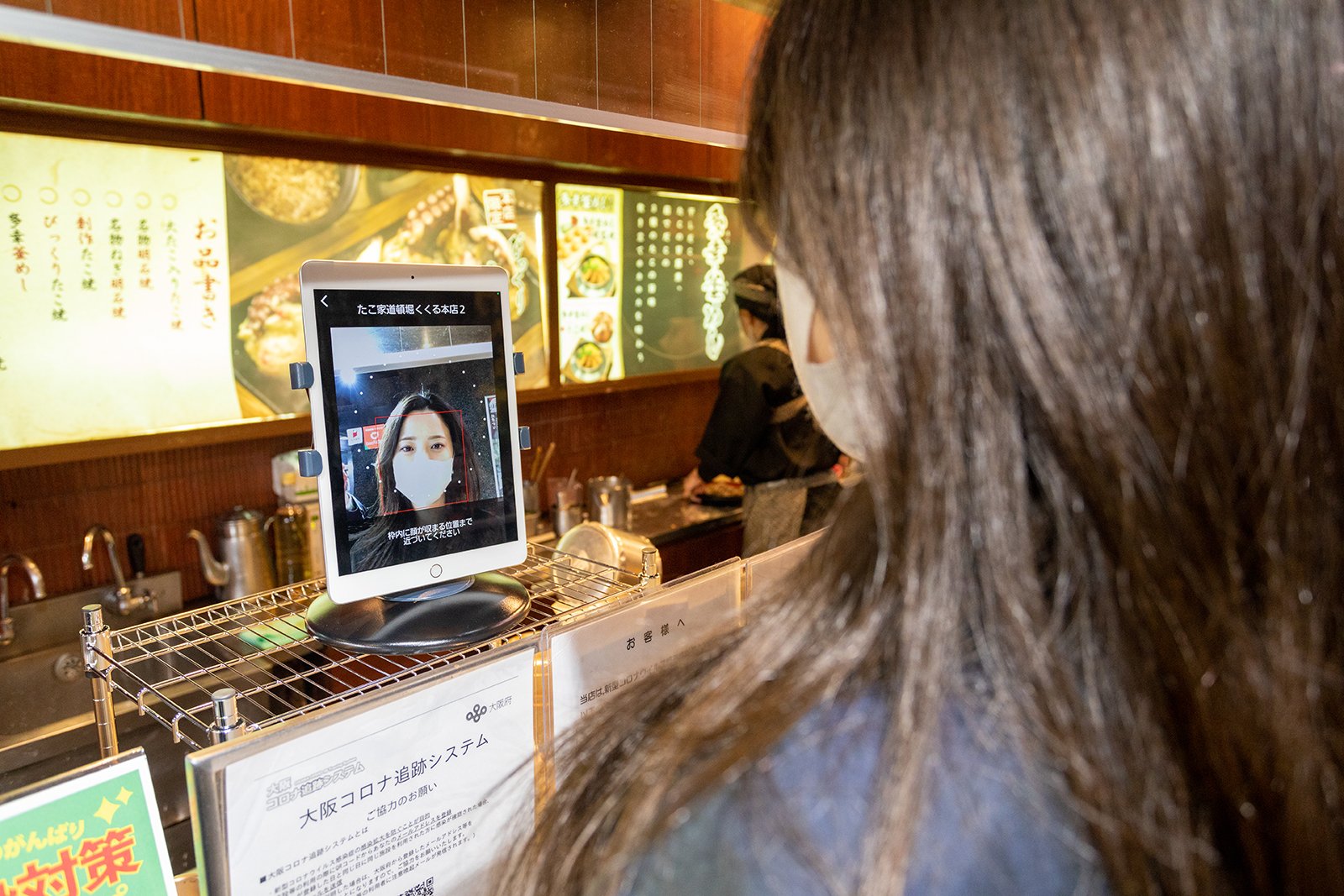
The worldwide COVID pandemic and the resulting restrictions on people's movements have prompted changes in the way we work, live, and spend our free time. Even after these restrictions are lifted, certain habits and behaviors that have taken hold during the pandemic are likely to remain with us. Among these are the avoidance of unnecessary physical contact and a greater readiness to go online to perform various tasks.
In Japan, these trends are converging with another development - digital transformation. Despite the country's deserved reputation for developing cutting-edge technologies and the widespread embrace of smartphones by its citizens, the provision of services in the retail sector and by local governments still relies heavily on face-to-face contact and on dated technologies. To address this, the national government is making digital transformation a priority, and the COVID pandemic is spurring private sector innovation in this area.
Panasonic has developed a range of technologies and solutions that play into this space. They include facial recognition systems that obviate the need for manned checkpoints at the entrance to commercial venues, and advanced projection mapping solutions that can create virtual environments that are almost indistinguishable from their real-world equivalents - and in many aspects are more appealing and entertaining.
Technology is also allowing tasks previously performed by humans to be automated - for example, hotel check-in via smartphone and self-service supermarket tills. While such technology is sometimes controversial because it's seen as taking employment away from people, in Japan, with its declining population and accompanying labor shortages, it is mostly welcomed.
Given the importance of tourism to the country - pre-COVID, it contributed around US$ 360bn annually to the national economy - the recovery of the sector and its future growth are another key focus of the Japanese government. With inbound tourism from overseas having ceased almost entirely during the pandemic and with fewer domestic trips being undertaken, a strong rebound is expected once restrictions are lifted. The intervening breathing space is allowing companies active in the travel sector the opportunity to innovate.
Osaka, Japan's second largest city and the center of the country's commerce-rich Kansai region, is launching a number of initiatives to utilize digital technology to support tourism, with an initial focus on shopping and entertainment. Osaka also happens to be the home city of Panasonic, and the company was invited by one of its local councils to partner in a trial of some of these digital initiatives during December 2021.
The trial was organized by the city's historic Dotonbori district, a waterfront area home to around a hundred restaurants, shops and entertainment establishments. The local council aims to use digital technology to encourage more people to visit the area in an effort to revitalize it. Around 20 of the stores participated in a trial of digital solutions provided by Panasonic.
The first of these is a facility that deploys facial recognition to verify a customer's identity when they make payments, reducing the need for human intervention. Instead of paying with cash or using a card, customers simply look into a screen that verifies their identity by cross-checking it with a saved image. This offers protection for customers and store owners, as it is contactless and does not require customers to remove their masks. It also provides improved security for vendors against fraud.
A second focus of the program is addressing an issue that pre-dates the COVID pandemic: how tourists can more easily find information about places to visit. Computer graphic (CG) technology featuring 360° panoramic imaging was deployed during the Dotonbori trial to provide information about places of interest in a more engaging and entertaining format, resulting in a solution known as the "Virtual Dotonbori." Among other features, it enables users' smartphones to display a CG image of what the street they are in would have looked like 100 years ago.
A further innovation was the company's "AR Photo Walk" solution, a kind of smart guide hosted by an avatar that provides visitors with valuable information such as the location and attraction of individual sites and shops while they are exploring these. Leveraging augmented reality (AR) technology, the solution also incorporates a feature that allows users to superimpose photos of themselves on a virtual background of famous landmarks. Post-travel, it also allows them to share their experiences on social media, which in turn provides valuable feedback for potential future visitors planning their own trips - a virtuous circle of encouragement.
Further work on the collaboration with Osaka's Dotonbori district is currently on hold as a result of the COVID pandemic. In the meantime, Panasonic is in discussions regarding the provision of services for the EXPO event scheduled to be held in Osaka in 2025, and for a new integrated resort mooted for construction in the Osaka Bay area by the end of this decade.
Panasonic Corporation Integrated Resort Business Promotion Division's Yasuhiro Omi (R) poses with Panasonic Systems Solutions Japan's Tsutomu Muraji (L)
These facilities are likely to receive thousands of visitors from within Japan and from overseas every day. The services Panasonic may be called upon to provide might include pre-visit guidance for prospective attendees, facial recognition-based entry control and AR-based guidance and entertainment services within the respective facilities.
The company is also considering measures to boost the level of cross-border e-commerce sales, allowing people to buy souvenirs and other items from Japan after they return home.
A Panasonic spokesperson summarizes the company's aims in the field of smart tourism. "In the post-COVID era, we want to make travel smoother and more convenient, and we hope that these innovations will help promote and revitalize regions all across Japan."
# # #
Disclaimer:
We would like to note that Panasonic Newsroom is not a place to address personal Customer Service issues. Even though this is not the forum, Panasonic is always eager to resolve your concerns. Our local customer services contacts can be found at Global Support or you can see our list of Social Media Accounts to find the right channel for your queries and concerns.








